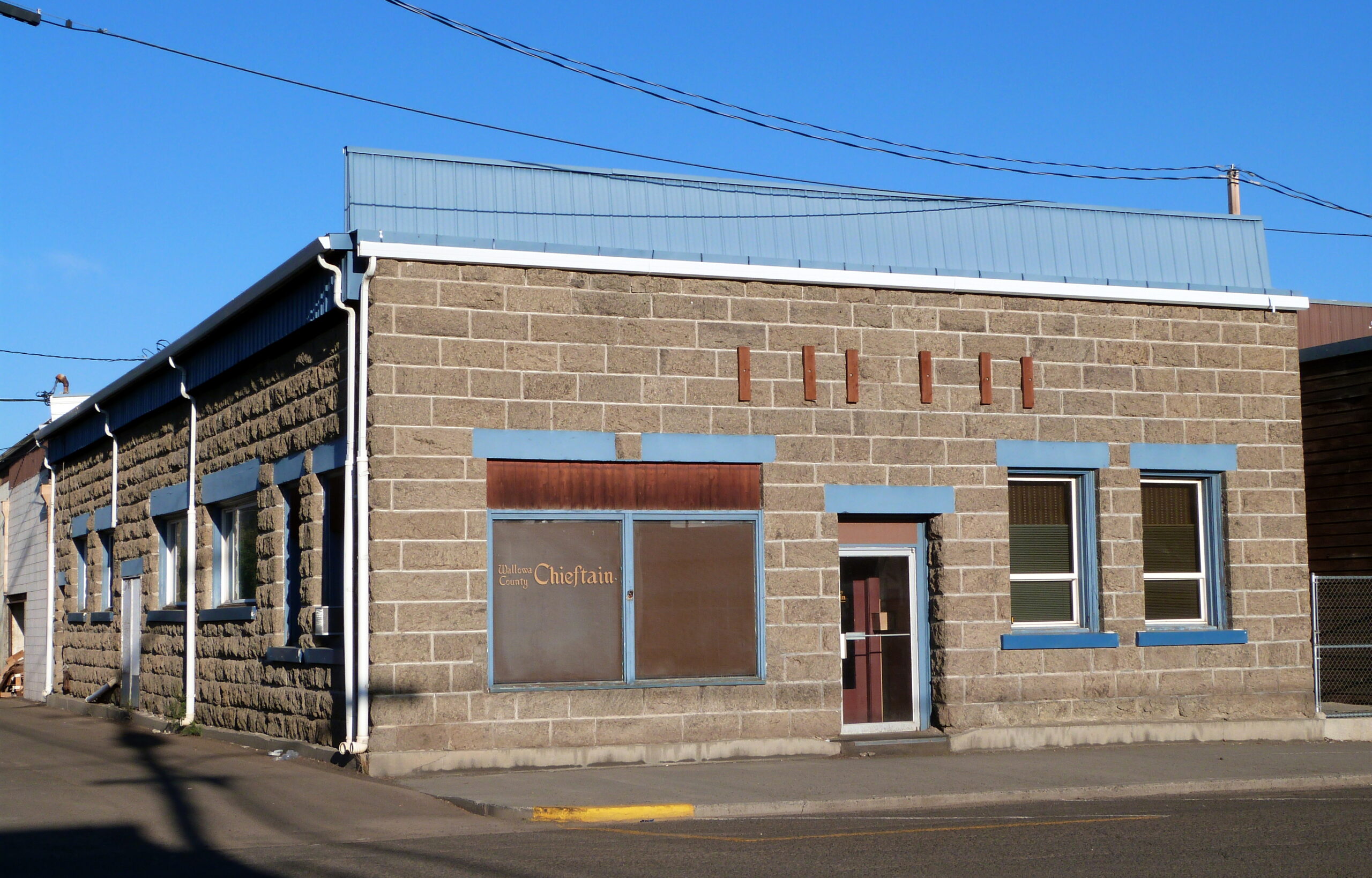–From Enterprise, Oregon
I guess this is my last column for the newsPAPER—the hundred year-old Wallowa County Chieftain. If I continue this, it will be words on my screen going to words on your screen. Quite a change from my first columns, 35 years ago, when I would take typed pages to the Chieftain office, and Ann Christman would key my words into type and the printed pages would happen right there, in downtown Enterprise. Editor Bobbie Evans recruited me to the job, and gave me $25/month for two columns. Pay eventually went up to $50/column, and then down to nothing.

The real story is that our newspaper, along with newspapers in cities and towns across the country, is going away, and a piece of the glue that held us together — held farmers and townspeople, loggers and merchants, old and young, R and D, churchgoers from this church and those with no church — is gone. Sure, we can read it online, except for those too young, old, poor, or disinterested in computers to make the leap. We won’t be looking at it together in the Post Office or at the newsstand either. Our news will be consumed in solitude. One more chink in the idea and practice of community.
I’ve been thinking about another essential part of community: housing. In 1971, when I arrived in the Valley, a Joseph teacher, a single mom, rented out rooms in her big Joseph house. A friend lived in the big house at Eggleson Corner, and there were numbers on the upstairs bedrooms; it too had been a boarding house. As had the Evans house in Wallowa. Bob Jackson lived there for years when he first arrived from Iowa, and recounted how Mrs. Evans had been widowed and made her way taking in borders and feeding them.
One of my good bookstore customers had lived in a La Grande boarding house for 40 years. He worked in a mill and came to Enterprise on weekends to help his sister, a single teacher then retired. I’m sure there were other boarding houses in Enterprise, and maybe in Lostine, which by my time only had cheap rooms in the big white building across from M. Crow. Roomers took their morning coffee and maybe some meals at the Lostine Tavern across the street.
There were reasonably priced rooms above Homan’s Drugstore in Enterprise. That’s where Johnsons’ sheepherders stayed when they came to town. And “Smoky,” a curious fellow who showed up with warm weather each year and walked the town dog (maybe it was the dog that was named “Smoky”) from one end of Enterprise to the other every day. The dog had a dish set out for him at the other bar, Stockmen’s, in downtown Enterprise.
The rooms above Homan’s, with a shaving sink in each one and the bathroom down the hall, have been converted into luxury hotel rentals. No drugstore there or across the street at Noland’s. No soda fountain at Homan’s either, where Jerry refused to do away with nickel cokes in the small coke glasses, and Rose Reynolds made 60-cent tuna sandwiches for a quick lunch.
You go to Safeway for your pharmacy now, and get your sodas at one of the drive-through coffee places. No sitting at the counter talking to Dr. Sharff and the old attorney, Bob Chrisman. Chrisman told me that when he came to town people asked him how he was going to make a living, being as there were already nine lawyers in the county. He said that he’d rather fish anyway, but he outlasted the nine.
Back to housing and newspapers and how we live and get our news. In the 1970s, If you were from Eastern Oregon and went to Portland, you probably stayed at the Imperial Hotel, where you could catch up on news from Lake and Grant counties. Up the block from the Imperial were hotels that rented rooms by the week. Retirees on small incomes could afford these places, which have gone the way of boarding houses and the cheap rooms above Homan’s. I guess they are reduced to tents and homeless shelters now, at least some of them.
In Wallowa County — where apartments have become Airbnbs and even small houses routinely sell for over $350,000 — local retirees hang on in houses handed down for generations, and potential employees with good jobs in schools and the hospital can’t find affordable places to live.
The sad part is losing the glues that held us together, the boarding houses that were homes, the cheap rooms alongside downtown businesses, the newsPAPERS that a poor man could peruse at the soda fountain counter with a nickel coke while he talked with the good doctor, who would sometimes write a prescription, hand it to pharmacist Jerry, and laugh that he’d lost a five dollar office call.
Discover more from Post Alley
Subscribe to get the latest posts sent to your email.

This captures so much so well!
See Seattle Times story about the Everett Herald laying off half its staff. I’m angry at the industry, and disappointed in our communities for staying mostly silent as papers shrink and shut down.